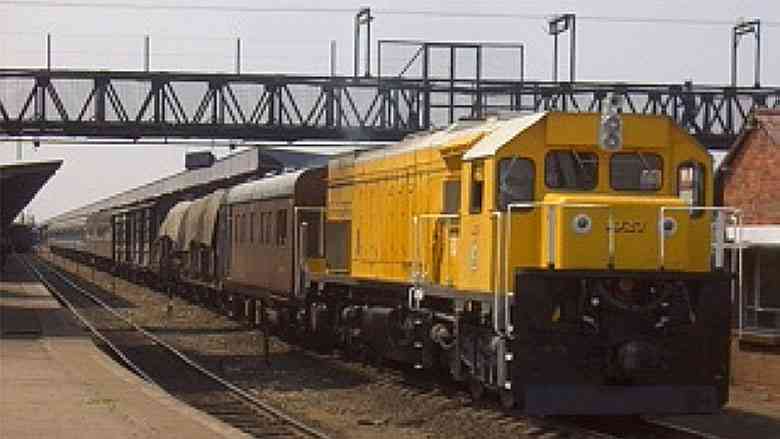
ZIMBABWEAN State-owned Enterprises (SoEs) are a drain on the fiscus and most of them are now technically insolvent despite the fact that some were actually monopolies.
What went wrong and how can it be corrected? The answer lies in looking east at China.
At independence in 1980, about 80 SoEs were contributing about 40% of Zimbabwe’s gross domestic product (GDP).
In simple terms, these enterprises were the heartbeat of the national economy.
However, within a decade, most of the companies had started showing signs that they were collapsing amid scandals and the government then was planning to dispose them to private investors.
It is important to mention some of the companies which includes: Dairibord, Cotton Marketing Board (now Cottco), National Railways of Zimbabwe, Grain Marketing Board, Industrial Development Corporation, Cold Storage Commission (now Cold Storage Company), Postal and Telecommunications Corporation (now TelOne, ZimPost and NetOne), Arda, Zupco, Air Zimbabwe, Zimbabwe Mining Development Corporation, Noczim, Zesa, Agricultural Finance Corporation (renamed Agribank Holdings, but now AFC Commercial Bank) and Udcorp.
The afore-mentioned partial list of SoEs show that the State had an extensive network of companies that straddled the transport, communications, banking, mining, manufacturing and agricultural sectors. Government was a big player in the national economy.
One was inclined to ask what went wrong. The answer is simple: It’s leadership stupid! Soon after independence, the newly-elected Zanu PF government went on a cadre deployment drive.
- Mavhunga puts DeMbare into Chibuku quarterfinals
- Ndiraya concerned as goals dry up
- DeMbare’s double boost
- Wadyajena’s super cars towed
Keep Reading
It did not matter whether one had experience or competency to run such operations, one simply had to be a loyal party member. In today’s parlance — politically correct.
The appointed executives started living large. The enterprises became Zanu PF funders in one form or another.
Even at lower ranks, people were employed on the basis of the party card. It was a recipe for disaster and certainly disaster happened.
This is not unique to Zimbabwe. South Africa today has the same problem, where SoEs are now insolvent and a burden to the fiscus.
The African National Congress government of South Africa copied everything from the Zanu PF playbook in cadre deployment and using SoEs to fund the party.
As the alarm bells started ringing, Zimbabwe had to embrace the neo-liberal International Monetary Fund (IMF) Economic Structural Adjustment Programme, whose thrust was privatisation, reduced social spending and lean governments.
The privatisation went horrible, with only one successful story of Dairibord. The lean government was never implemented, actually the Cabinet has been ballooning with each subsequent general election.
This week, the government awakened to the havoc they created. In a post Cabinet statement, it said: “Cabinet noted that there is a significant amount of idle, unutilised and abandoned industrial space in the form of empty shells, rail infrastructure and other properties that belong to private and public entities which have been abandoned by their owners. An inter-ministerial taskforce will be established to focus on co-ordinating the identification of idle and abandoned industrial infrastructure spaces.”
It further stated some lukewarm reforms that include: “Penalties are being enforced against all perpetrators of unjust price hikes, manipulation of the ZiG currency, smuggling, and all forms of unfair trade practices. The government is going to review the fines from a minimum of US$200 Level 5 to a maximum of US$5 000 Level 14 or the ZiG equivalent for the various offences.”
This falls short to scare the hell out of the executives. After all, it’s not their money. There is no personal liability.
The party will always protect them or redeploy them somewhere if there is public outcry.
The government has since recapitalised Mutapa Investment Fund to the tune of US$2 billion, but the devil is in the detail of the law that governs the Fund.
The Fund is expected to speed up privatisation of SoEs and is only accountable to the President and, to some extent, the Finance minister.
Zimbabwe can look up to China on managing SoEs. This is a State-led economy that now rivals the United States in terms of GDP.
The hallmarks of the Chinese economy are: appoint managers on merit, heavy-handed personal punishments for chief executives of SoEs and zero tolerance to corruption.
The United States-based Stanford University: Center on China’s Economy and Institutions in November 2023 published a paper titled The Rise of the State-Connected Private Sector in China.
It gave insights into how the Chinese economy is being managed.
The paper concluded that “equity ties to the State may have aided, not constrained, the growth of China’s private sector”.
“Taken together, these findings indicate that a large share of China’s economy is neither completely state-owned nor completely privately owned but rather in a grey zone of mixed ownership,” the paper read.
“In contrast to the widely held view that State ties encumber private enterprise, the proliferation of State-connected private owners suggests that they benefit from their equity ties to the State. As such, the rise of State-connected private owners may be a significant driver of China’s rapid growth.”
One, therefore, can ask: Is Zanu PF ready to reform and learn from China? The answer is a big no for a variety of reasons.
Zanu PF still seconds its average or worst brains to head SoEs as an avenue to facilitate the looting of public resources for personal gain by the political elites and the politically exposed persons.
It is reluctant to take action against poor performing SoEs' executives even in the face of irrefutable evidence contained annually in the Auditor-General reports.
If it were in China, dozens of chief executives would be at Chikurubi Maximum Security Prison as you read this or dead at the hands of the firing squad.
This is the paradigm shift needed in government today. Sadly, it is not there and the looting seems to be on the way up.
It is actually now on steroids, but can be halted if the government wants or we have a change of government to a better, competent and public service-oriented leadership.
All the solutions are out there and Zimbabwe needs not reinvent the wheel on managing SoEs or managing the economy.
-
- Paidamoyo Muzulu is a journalist based in Harare. He writes here in his personal capacity.










